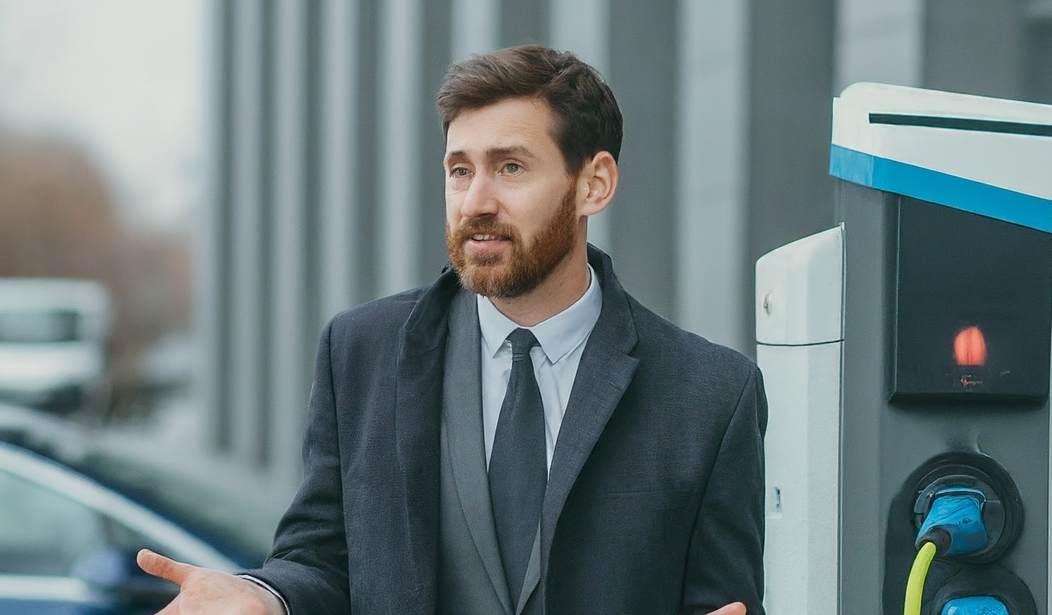Europe gave us Communism, trench warfare, the Holocaust, and the six-and-a-half minute version of Trio's "Da Da Da (Ich Lieb Dich Nicht Du Liebst Mich Nicht Aha Aha Aha)." So when I read that some new bad idea has taken root somewhere, it never surprises me when the "somewhere" turns out to be somewhere in Europe.
(Sorry about the earworm.)
One of the very first green parties in the world was founded in Europe, natch, as Switzerland's Popular Movement for the Environment. Greens took solid root in Europe's fetid political soil, fertilized with aid — meant to destabilize Western nations — provided by the USSR and, later, the Russian Federation.
Germany's Green party rode to national prominence on the promise to shut down the country's zero-carbon nuclear power plants because they care much more about inflicting human misery than protecting the environment. It took decades but they've been largely successful.
So when European carmakers went all-in on pledges to go all-electric by 2030 or thereabout, it was just the latest in a long sequence of self-destructive events begun 50 years ago. 2021 was a big year for such promises, possibly taking their cue from the newly-installed President of the United States, Joe Biden, and his determination to make the U.S. go all-electric and/or bankrupt us trying.
For German luxury carmakers to show such ambition at least made more sense than, say, Ford or Chevy. Your typical luxury car buyer doesn't flinch at a six-figure sticker price and likely has more than one car to rely on. Getting him to whip out the checkbook on the latest high-priced tech goodies is much easier than it is for a middle-class buyer who wants something reliable that won't bust the budget.
Audi announced Vorsprung 2030 in 2021, "with the goal of accelerating the automaker’s electrified transformation originally slotted for 2026," and they've spent more than $10 billion trying to get there. BMW made a similar announcement that same year, saying "it expects around 50% of its global sales to be battery-electric vehicles by 2030."
At the same time, Mercedes promised they'd be all-electric by 2030 "but with a major caveat." The Stuttgart-based carmaker said they would only sell EVs "where market conditions allow" because apparently hard drugs aren't as easy to find in Stuttgart as they are in Munich (BMW's HQ) or Ingolstadt (Audi's HQ).
Well, the market has spoken — and Stuttgart listened. Mercedes had said that every new vehicle architecture introduced from 2025 on would be electric but that promise ran out of charge.
You can imagine my surprise that it was a German luxury carmaker to backtrack so far, so fast.
The report flew under my radar on Thursday, but Mercedes has said "it’s backtracking on its EV commitment," and will continue manufacturing gas-powered cars well into the 2030s. "Mercedes-Benz now expects electrified vehicles (including hybrids) to represent 50% of total sales in 2030," Elektrek reported on Friday," drastically lower than the 100% commitment from 2021."
"After the automaker’s net profits slipped 21% in Q4, Mercedes is slowing its transition."
Electric vehicles aren't any better for the environment and wear through tires and roads faster with their added weight, among many other well-documented deficiencies. But none of those details mattered enough to deter woke-minded auto industry executives from going all-in anyway.
What does matter is money, and Mercedes wants to keep making oodles.
Recommended: WATCH: Biden Says 'I Wanna Get This Quote Exactly Right' Before Hillariously Failing










Join the conversation as a VIP Member